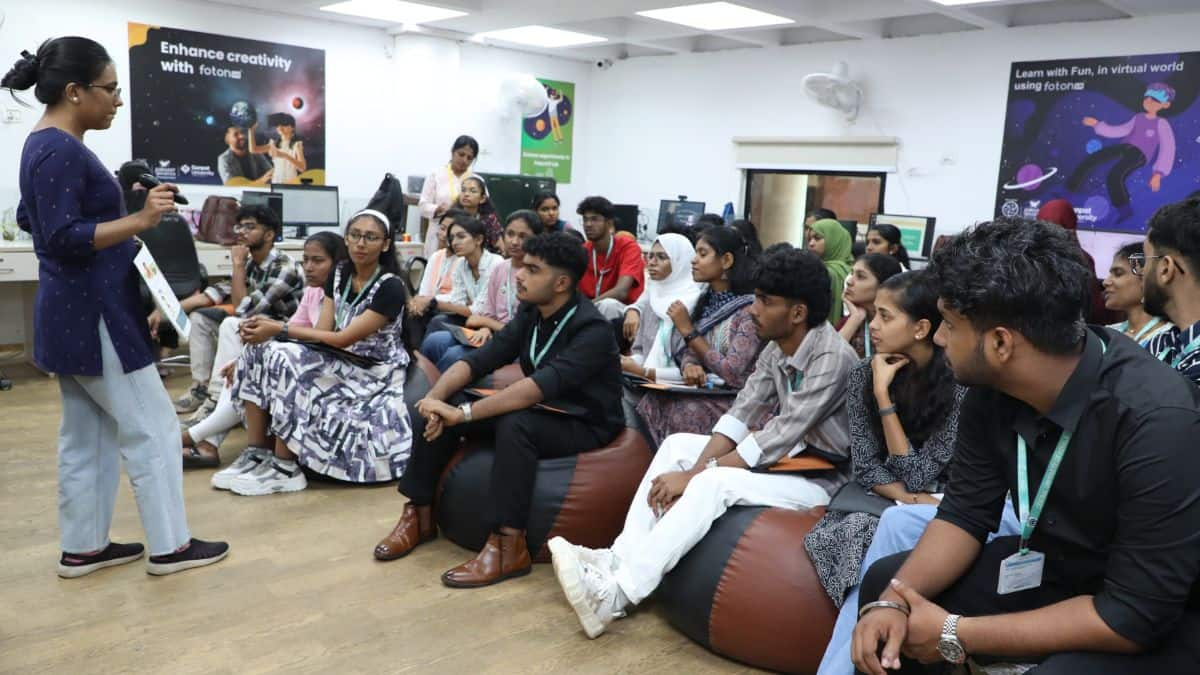NCTE gives 15,000 standalone B.Ed colleges 5 years to become multidisciplinary, launch ITEP
Shradha Chettri | June 18, 2025 | 06:26 PM IST | 4 mins read
The council has given the teacher training colleges three pathways to launching BA.BEd, BSc.BEd and BCom.BEd degrees – merge or collaborate with another institution or upgrade

With the National Council for Teacher Education (NCTE) mandating the introduction of the Integrated Teacher Education Programme (ITEP), in line with the National Education Policy 2020, the council has issued guidelines to help standalone teacher training colleges start the programme.
The NCTE’s guidelines provide three options – “independently transform into a multidisciplinary institution by starting two new undergraduate programmes”, “merge” with existing multidisciplinary higher education institutions (HEI), or in case neither is possible, collaborate with a multidisciplinary institution within a 10 km radius.
By 2030, every standalone teacher education institution has to transform itself. Standalone teacher training institutions are those which are offering NCTE-recognised teacher education programmes only. According to NCTE, there are around 15,000 such institutions.
Under ITEP, a BA.BEd, BSc.BEd or BCom.BEd degree can be obtained in four years. The four-year teacher training course combines a major in a specific discipline with an education degree. Before this, a Bachelor of Education (B.Ed) took five years – three years of an undergraduate degree followed by two years of B.Ed.
Now, the council has also announced the start of one-year B.Ed and M.Ed (Master’s Degree in Education) programmes.
ITEP: Institutions and curriculum
ITEP was launched as a pilot in 42 institutions in the 2023-24 academic session. It became the first teacher education programme in elite technical colleges such as the Indian Institutes of Technology and National Institutes of Technology. Now, 19 central universities, 21 state universities, seven NITs, three IITs and 14 colleges offer the programme. The council is in the process of granting recognition to other institutions to begin the course for various stages.
Since the ITEP curriculum is aligned with the National Curriculum Framework for School Education (NCFSE), each institution chooses a stage of education to prepare teachers for. As per the new school structure, the pre-school and school years are divided into four segments (5+3+3+4) and the stages are foundational, preparatory, middle and secondary.
“By transitioning into multidisciplinary institutions, the standalone teacher education institutions have a unique opportunity to move beyond traditional boundaries, fostering an environment where diverse disciplines intersect and enrich one another. This transformation will not only enhance the skills set of students but will also equip them to address complex real world challenges with a broad, cross disciplinary perspective,” wrote NCTE chairman, Pankaj Arora.
Upgrading B.Ed colleges
The conditions for transforming into a multidisciplinary higher education institutions include the following:
- Offering a minimum of two undergraduate degree programmes consisting of a disciplinary component of 64 credits or more as required by UGC or other regulatory bodies
- Fulfilling accreditation and compliance requirements of infrastructure, teaching, governance and other parameters
- Compliance with performance appraisal report as mandated by NCTE.
Earlier, Arora had told Careers360 that in the third and fourth phases of application, over 1,400 institutions had applied to start the ITEP courses.
There is a separate examination called NCET (National Common Entrance Test) conducted by the National Testing Agency (NTA) for admission to ITEP.
Merger with multidisciplinary institutions
The guidelines state that for merging, the institutions should be running within the same campus or in an adjacent campus situated within a 3 km radius.
There are more conditions for merges. “The concerned state government must justify the need for a teacher education programme in that region. Such institutions shall produce a certificate to this effect from the concerned state government,” state the guidelines released recently.
The institution will then become a department of education in that HEI. The merged institution will again have to apply for fresh affiliation with NCTE. One unit each for the three ITEP courses will be permitted. One unit essentially consists of a maximum of 50 students.
Even within this, there are two options – merging with another institution under the same management and merging with an institution under different management.
If both are under the same management, “the managing trust/society must submit to NCTE the approval of such merger by the management committee, affiliating university and state government as applicable”, says the document.
When the merger is of institutions headed by different management, they will have to follow the procedures laid out in the relevant Societies Registration Act.
Collaboration with multidisciplinary HEI
Where a quick upgrade into a multidisciplinary institution or a merge with another is not immediately possible, the NCTE has allowed “collaboration” with HEI within 10 km as an interim measure.
Even for this, there are conditions and they include:
- The HEI must be within a 10 km radius and there should be a need for a teacher education programme in the region
- The standalone teacher education institution must have a certificate from the state government justifying the need for a teacher education program in that area
- The proposal for collaboration must be submitted to NCTE for approval
Along with these mandatory requirements, the collaboration can only happen with those HEI which already have at least two UG degree programmes.
“The collaborating multidisciplinary HEI should not have an education department of its own. One HEI can only collaborate with one standalone institution. NCTE shall maintain a supervisory and regulatory authority over all such collaborative arrangements,” added the guidelines.
The NCTE has also drafted curricula for education programmes in yoga, art, physical education and Sanskrit.
Follow us for the latest education news on colleges and universities, admission, courses, exams, research, education policies, study abroad and more..
To get in touch, write to us at news@careers360.com.